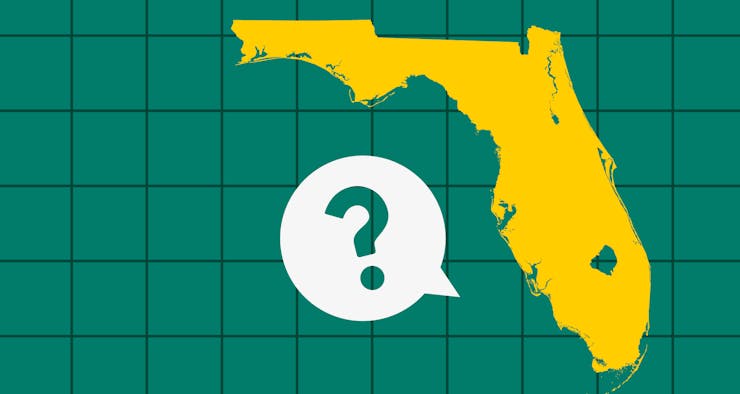Despite promises of inclusion, Florida’s only minority license holder is from out of state.
Florida is home to the highest number of medical cardholders on the East Coast (roughly 600,000). The state has a similar population to New York, but far more registered medical patients than the Empire State’s 150,000.
New York’s medical laws passed three years before Florida’s, so we’re not comparing apples to oranges here. The Sunshine State is second only to California when it comes to medicinal growth nationwide.

Even with Florida’s overwhelming patient numbers, recreational sales and use remain illegal statewide. That means just 22 licensed medicinal operators are serving over half a million patients at over 200 retail locations.
And of Florida’s 22 legal licenses, just one is held by a Black or Brown owner. The state’s sole minority-controlled license belongs to multi-state operator Cookies, which originated on the West Coast.
The lack of access for Florida’s Black farmers, in particular, shows direct negligence of Amendment 2, which first brought medical cannabis to the state. Part of the law requires that health officials grant a license to at least one applicant involved in the state’s ongoing Pigford cases.

Florida’s ugly past with Black farmers
The Pigford vs. Glickman case started as a 1999 class-action lawsuit against the United States Department of Agriculture (USDA). The case was on behalf of Black farmers who claimed racial discrimination by the government.
A judge ordered the federal agency to pay almost $1 billion to 13,300 farmers. Payment went to farmers who were denied access to farm loans and assistance between 1981 and 1996. An additional $1.2 billion was allocated to 70,000 farmers in the 2008 Pigford II settlement.
The state has had four years and almost 85,000 potential Pigford farmers to choose from. So what’s stopping Florida health officials from finding one eligible farmer to satisfy their already underwhelming social justice measures?
It’s yet another chapter in the state’s centuries-long neglect for Black farmers.

Enslaved people and sharecroppers built Florida’s economy on sugar, tobacco, and cotton. But practices like those outlined in the Pigford cases have blocked them out of the state’s fruitful economy for generations.
Shop highly rated dispensaries near you
Showing you dispensaries nearIn the cannabis industry, Black and Brown legacy providers who ran the state’s illicit markets are also waiting for a chance to participate in the industry they helped build. While they wait on the sidelines, corporate cartels and potential monopolies are forming under the governor’s nose.
Pot politics in the Sunshine State

It took the urgency of an upcoming election for sitting Governor Ron DeSantis to stand up in support of the long-awaited Pigford applicants.
Last week, the governor’s administration finally rolled out plans for Black cannabis farmers to apply for a license to grow, process, and dispense medicinal cannabis.
The rollout did not specify a timeline for applications. Nor did it address the four-year gap in action.
DeSantis is holding onto a modest lead over a pair of 420-friendly challengers in next November’s race. That may be why he’s aligning with one of the only bi-partisan issues left in America.

According to a real estate survey by Redfin, almost half of Americans (46%) prefer to live or will only live in a state with legal cannabis. And the green vote extends across blue and red states, according to data.
Pew Research Center found that 72% of Democrats and 47% of Republicans support legalization for medical and recreational use. Gallup reported similar figures by party (83% and 48%) as well as a five-point jump from last year’s percent of U.S. adults who now consider “marijuana to be morally acceptable.”
With the Florida governor race coming to a boil, this is DeSantis’ last chance for genuine action. A top priority should be doing right by the legacy farmers he’s left out of the state’s booming bud economy for far too long.

Can Democratic challengers pull the dank vote?
DeSantis’ latest smokescreen could help create distance between pot positive challengers Charlie Crist and Nikki Fried.
Crist served as Florida’s governor from 2007 to 2009 and left without seeking re-election. In 2012, the former Republican changed parties to support Barack Obama’s campaign. In 2014, he became a public advocate of cannabis legalization.
He’s also close with prominent Florida businessman John Morgan, who helped bankroll the fight to legalize medical in 2014 with his group United for Care.

Last week, Crist made headlines by announcing his “Crist Contract With Florida.”
The contract includes ideas on expungement, home grow of up to six plants for personal use, criminal justice reform, expanded re-entry programs, and tax revenue for police, nonprofits, and teachers.
Still, Crist contract’s does not address how an adult-use market would look under his leadership, including licensing for minority applicants.
Fried rhymes with weed for a reason
Crist’s competition on the left is Agriculture Commissioner Nikki Fried, a popular advocate for the plant across the state.
Last week, Fried pulled rank on Crist and DeSantis via Twitter. She wrote, “Imitation is flattery, but records are records. People went to jail because Republicans like @CharlieCrist supported and enforced racist marijuana crime bills. Glad he’s changed his mind, but none of those people get those years back.”
Fried’s Twitter account also called out a $146,000 non-refundable application fee included in DeSantis’ latest plan for Pigford case applicants.
She tweeted, “Let’s not let a former governor’s flip flopping press conference on marijuana distract from our current governor doubling fees on Black farmers applying for a medical marijuana treatment center licenses. The fee hike by @GovRonDeSantis is discriminatory and should be repealed.”
Whoever wins has dues to pay
Florida agriculture’s past exploitation and exclusion can’t be fixed by a court settlement or special class of licenses. And the lack of action on small gestures of inclusion like the Pigford cases doesn’t inspire confidence in more substantial action.
The impact of slavery and sharecropping did immeasurable harm to Black farmers in America’s south for centuries. As the state rides its new cash crop to untold riches, the winner of Florida’s race for governor will be on the clock from day one to responsibly handle the power that comes from our favorite magical plant.
Budding Mary Jane monopolies

Almost five years after Amendment 2 made medical use possible, state cannabis agency OMMU requested nearly $13 million of additional funds. The money will be used to double workforce, publicize medical use, add transportation vehicles, and open regional offices, according to CBS Miami.
Florida recently became home to the nation’s largest cannabis retailer with the $2.1 billionTruelieve deal struck by former competitor Harvest Health & Recreation Inc.
But as many legal states have already learned, sound economies do not include monopolies. And it is much easier to bake fair social equity measures into laws from inception than to retrofit new rules onto active markets.
Another 2017 addition to Amendment 2 called for Florida to add 19 more treatment centers to meet increased demand across the state.
The move was aimed at preventing monopolies from forming after medical laws were first passed. Five years later, much like the Pigford licenses, those 19 new joints haven’t come to pass either.





